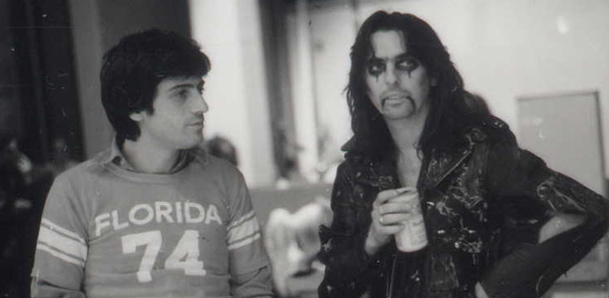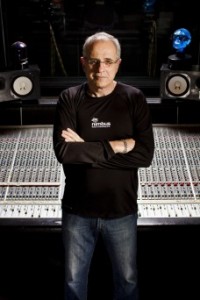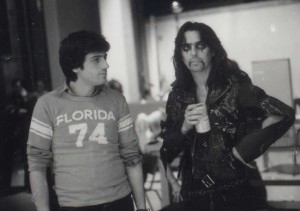

Industry must call music ‘art.’ After all, Ezrin says, ‘A rose by any other name would NOT smell as sweet’ —
By DONNA BALANCIA – ANAHEIM – Legendary producer Bob Ezrin told music retailers Thursday that the industry must continue to build its talent pool in order to thrive.
Prior to his keynote address to kick off the 2014 National Association of Music Merchants Show in Anaheim, Ezrin told East Coast Rocker that the more time the industry wastes worrying about ancillary issues, the less time it will spend on its most critical function: To inspire and educate.
“If we spend time worrying about things like how to get the music out, the less time we will have to make insanely good music,” Ezrin told East Coast Rocker prior to delivering his speech at the annual event that draws thousands of industry members from around the world.
His morning keynote speech drew an audience of several hundred music retailers, many of whom forged through rough winter weather to attend the conference in sunny Southern California.
Using cool-sounding words doesn’t cut it for Canadian-born Ezrin, whose experience with “cool” is vast, having worked with hundreds of top musicians since the 1970s.
“When we talk about the future of making music, we have to watch the language we use,” Ezrin said. “Someone said to me, ‘It’s about the ‘content.‘ No it’s not. ‘Content’ is for cereal boxes, not the art. If it’s called ‘content,’ you diminish the value down to breakfast cereal…When you talk about it with mist in your eyes …Now you’re talking about music.”
Ezrin spends much of his time in philanthropy. He is co-founder with Garth Richardson and Kevin Williams of Nimbus School of Recording Arts in Vancouver.

Another word Ezrin can’t stand: “Monetization.”
“I don’t want to talk about business models, or the ‘monetization’ of anything, that’s a dirty word. Unless what we make is great, nobody’s going to pay for it. ”
How will the industry make money?
“The best thing we can be doing is insure a march to excellence, to empower, inspire, to promote people who are straining to do something unique,” Ezrin said. “And to encourage them. Music is the very special creation of very special people whose entire lives and everything they’ve ever done, seen, felt or touched goes into what they do. That process is magical.”
Ezrin said: “There is a certain amount of technique involved. So how do we become insanely great? One of the things to do, whenever you set out on a journey, you need to make a list of things Not to Do, and a list of things To Do. One of the things to do is to make a ‘Not to do’ list.”
Ezrin warned not to “Get caught up in toys, tricks, technology, packaging, positioning or any of those things before you have something to market,” he said.
Our society is perhaps too caught up in “chasing cool,” or “the latest” in tech and that viral or other song phenomena will happen without that tech factor most of the time, he said. Using the success of the catchy “Who Let The Dogs Out,” as an example, Ezrin said, “I’m sure that person was not sitting at a computer screen or at a conference like this.”

Ezrin said: “At the end of the day when somebody like Psy comes around, it travels around the world.” He said, the market is “extremely rational. The stuff of real value does get supported and earns something for somebody. And the stuff that’s not so good, typically doesn’t.”
He said formulas don’t count, unless you’re making a widget and what happened before won’t predict the future.
“Art is only something artists can manage,” said Ezrin. “A craftsman is someone who can create and build code .. And an artist is someone who creates something that is different.
He said: “A rose by any other name would not smell as sweet. If you called roses ‘kumquats’ it would not be the same.”
The music, and not the “content” or the calling it of such, is the key.
“It’s not technology or modality of delivery, it is the special creation of special people that especially touches the hearts of others,” that should be the concern of the industry.
The first line of offense in inspiring youths of today to take up an instrument is to put down the smart phone, Ezrin said.
“Kids, they hear things and kids are incredibly curious, thoughtful about what they see, even with their heads down things get in,” he said. “You need to inspire and educate. Take them to a concert. They may be on (the smart phone) but they internalize and maybe they’ll say, ‘I want to do that.”
